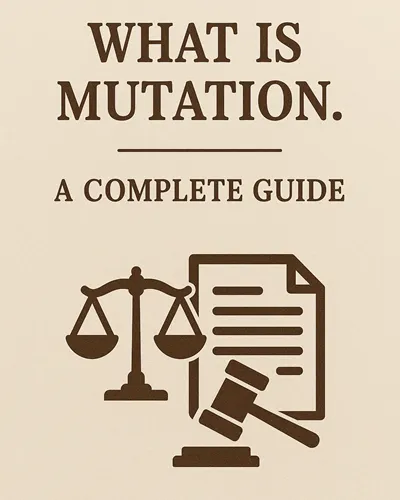
Property mutation means amending the property owner’s name in the government records after a transfer by sale, gift, will, or inheritance. These procedures do not prove ownership, but they are necessary for paying property tax and for later resale.
Why is mutation important?
- It brings revenue and municipal records up to date.
- It allows for the property tax to be paid in the buyer’s name.
- Prevents any disputes that may arise at the time of resale.
- Required for loans from banks.
State-wise Mutation Process and Charges
Table: Mutation Process & Fees (Government Sources)
| State | Process / Application Office | Fee Structure (Approximate) |
|---|---|---|
| Delhi | Submit application to MCD. All dues must be cleared before mutation. | ₹100 – ₹200 (depending on property type) |
| Maharashtra | Application to local municipal office/Talathi. Name change in 7/12 extract. | ₹25 – ₹100 |
| Uttar Pradesh | Apply at the Tehsil/revenue office (Bhulekh). Sale deed and tax receipt are needed. | ₹20 – ₹50 |
| Karnataka | Online application through the portal. Status can be checked online. | As per local rates |
| West Bengal | Apply at BLRO or municipal office. | ₹10 – ₹30 |
(Charges vary district to district; confirm with local office/portal.)
Common Mistakes in Mutation
- Thinking Mutation is automatic upon registration. It’s not automatic; you need to register Mutation separately.
- Passing incomplete documentation like submission of a sale deed or ID proof, missing from the list of requisite documents.
- Property tax funds with older dues are ignored; mutation will not proceed until dues are paid.
- Ownership is not to be assumed through mutation – it’s a record, not a title.
- Inheritance cases do not apply for a legal heir’s certificate.
- Do not check the records after approval – once granted, always keep a tab on the name in the official records.
- Delayed application creates some issues in resale or borrowing.
FAQs on Property Mutation
-
1. What is Mutation?
-
Updating government records with the new owner’s name after the transfer of property.
-
2. Does Mutation give ownership rights?
-
No, only a registered deed proves ownership. Mutation is for revenue records.
-
3. Where can I apply?
-
Municipal office, tehsil, or online portals like Bhoomi (Karnataka), bhulekh (UP), or MCD (Delhi).
-
4. What documents are needed?
-
Sale deed/gift deed, tax receipts, ID proof, application form.
-
5. Is it compulsory to do mutation?
-
Yes, otherwise records remain in the seller’s name, and taxes cannot be updated.
-
6. How much is the fee?
-
It varies by state: from ₹10 (West Bengal) to around ₹200 (Delhi).
-
7. Where to apply Online?
-
Yes, in some states like Karnataka and Uttar Pradesh.
-
8. What happens if I don’t mutate the property?
-
You may face problems in resale, loans, or legal disputes later.
-
9. Is mutation required after inheritance?
-
Yes, a legal heir certificate or succession documents are needed.
-
10. How long does mutation take?
-
Generally 15–30 days, depending on the state.
-
11. Do I need to clear pending dues before mutation?
-
Yes, especially in Delhi, where MCD won’t mutate without clearing dues.
-
12. What proof do I get after mutation?
-
Entry in municipal tax records or 7/12 extract/Khatuani depending on state.
-
13. Can mutation be done jointly?
-
Yes, names of multiple heirs or buyers can be recorded.
-
14. Can banks check mutation before giving a loan?
-
Yes, banks often insist on mutated records.
-
15. Is mutation the same as registration?
-
No, registration transfers ownership legally; mutation only updates records.
-
16. Is mutation needed for agricultural land too?
-
Yes, to update land revenue records.
-
17. Can Mutation be challenged?
-
Yes, in revenue courts or civil courts.
-
18. Is there a deadline to apply?
-
No fixed deadline, but applying immediately avoids future issues.
-
19. What if the seller has not done mutation earlier?
-
Buyer can still apply with the sale deed and other documents.
-
20. Does the gender of the buyer matter for mutation charges?
-
In most states, charges are the same for all genders.
Add new comment